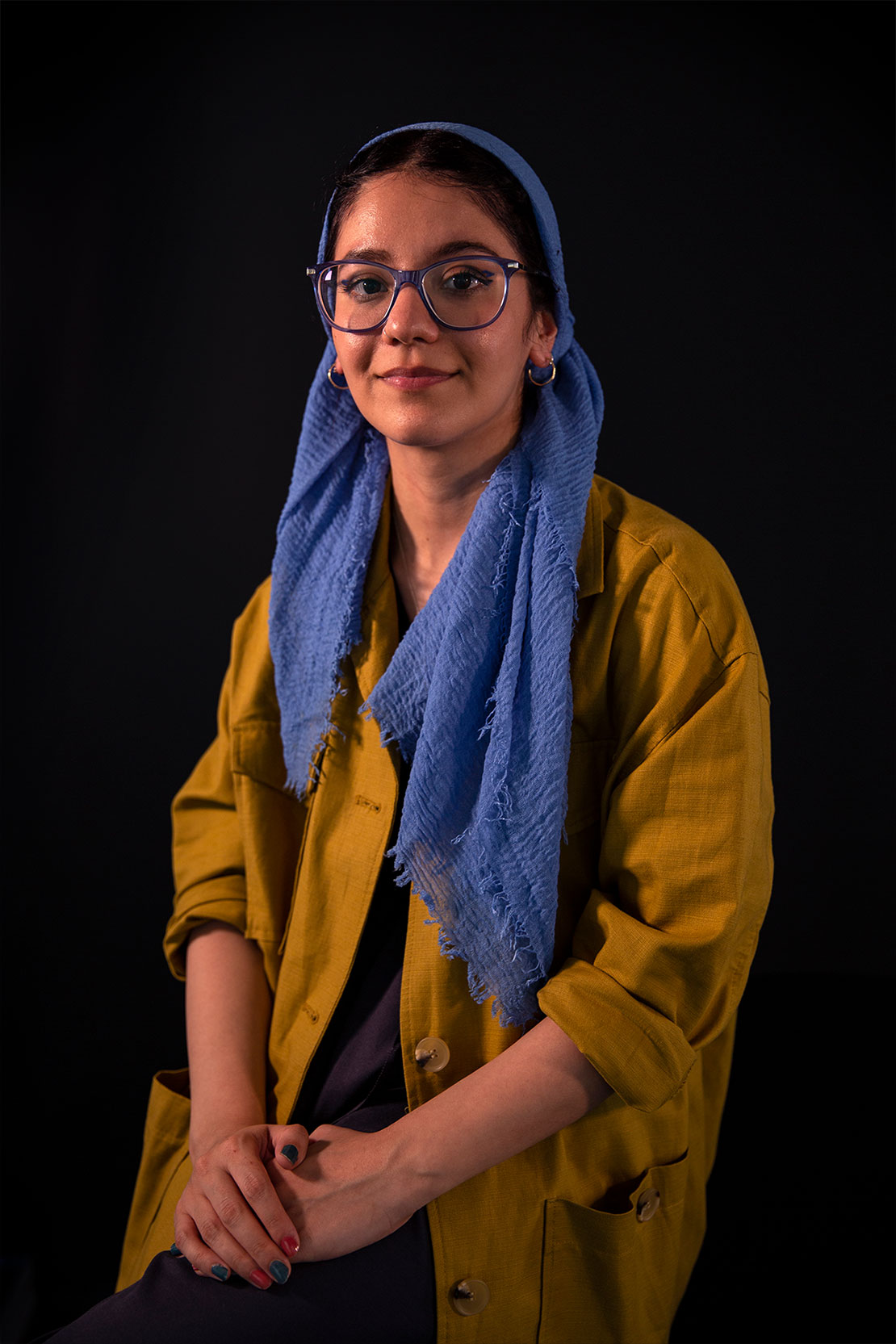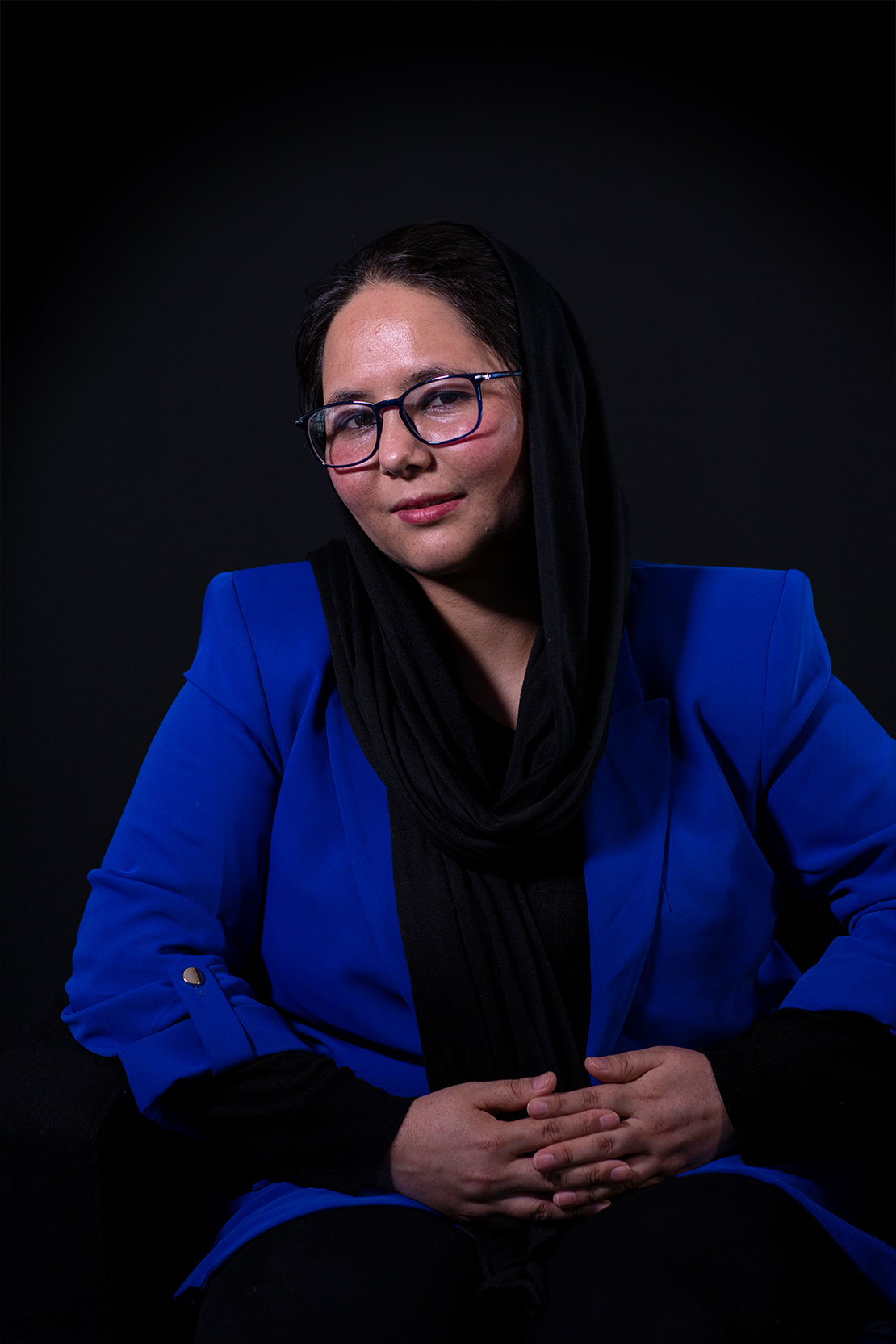Fighting the Taliban’s
Ban on Girls’ Education
What Is Lost When We Shut Girls out of School?
Nearly a year after the Taliban seized control, Afghanistan has notoriously become the world’s only country where girls are forbidden from attending secondary schools, solely because of their gender. It is true that in a few areas Taliban leaders yielded to community pressure and allowed girls’ secondary schools to open, but these instances are rare. To draw attention to the issue, Human Rights Watch interviewed prominent Afghan women about what education means to them.
Sahar Fetrat is an award-winning documentary filmmaker and an assistant researcher with Human Rights Watch who co-produced the videos. Heather Barr, associate director of our women’s rights division, interviewed Fetrat about what will be lost as this generation of girls is shut out of school.
Why did you want to do this project?
I joined Human Rights Watch in November to assist with research and advocacy for women’s rights in Afghanistan. Since the fall of Afghanistan to the Taliban, I go to bed feeling nostalgic, and I wake up in rage. I am nostalgic for the difficult but hopeful days we had in Afghanistan when we genuinely believed in change. But today, we are fighting for the bare minimum. And I feel enraged when I wake up every day thinking, how is it we are fighting for something as basic as girls’ right to education in 2022?
I did this project because I am extremely concerned for the present and future of girls in Afghanistan. On March 23, when the Taliban refused to allow girls to go to secondary school, like everyone else I felt devastated. As an Afghan woman, it is clear to me that education has changed my life and fate. I would have been a different person, trapped in a different destiny, had I not had the chance to get an education. This is the case for many Afghan women that I know and admire.
Through education we not only changed our fates but the fates of people around us. That is something I would never take lightly.
Because of war and the Taliban’s takeover in the 1990s, many people – especially women – are illiterate. When the Taliban took over then, a generation of girls lost at least five years of school and an opportunity to learn, thrive, and become. Nobody acknowledged the harm, no one understood the pain, no one was held accountable. I am worried the same thing will happen again if we don’t join forces and take action.
“Afghan women are half of the society, and if they don’t have education, I don’t think we can contribute much to the prosperity of the country.”
—Heela Yoon, Founder of Afghan Youth Ambassadors for Peace
“I am very much aware of the fact that had my parents not left Afghanistan, I too like millions of Afghan girls and women in the country could have been denied the right to an education.”
—Yalda Hakim, International Correspondent, BBC World News
You asked the interviewees to talk about what their lives would be like now if they hadn’t been able to study. How do you imagine your own life would be if you hadn’t gone to school?
I keep saying education has been life changing for me. It gave me a foundation for thinking, a set of choices, and tools to work with. It has been liberating for me. For example, secondary and high school for us was a place where I learned to socialize, felt inequalities, learned about myself, and dared to ask questions. Today, I can confidently say that the difference between where I am standing in life now and where I would have been if I didn’t have an education and all the opportunities that came with it, is enormous. Being educated through school helped me read, understand, unlearn, and challenge the old narrative regarding women’s position in family and society. It gave me a different perspective and opened my eyes to realities beyond my immediate world.
Education empowered me to save myself from various forms of oppression, injustice, and misogyny. This is the same for many other Afghan women. Through this project, I desperately wish to push the world to advocate for girls’ education. I also wanted to pause and think of where we all would be without the privilege of an education, especially as women. I know for me and many others that image is terrifying.
Why do you think education is so important?
Education is a significant and basic right. In 2022, we shouldn’t be talking about why education matters. However, here we are.
For a nation with the world’s highest illiteracy rate, education will always be a dream and a thirst. My mother was deprived of education because in her village, girls were not given enough importance to be allowed an education. My father was deprived of an education for other reasons. But they did everything they could for my siblings and I to fulfill that dream. I am the daughter of parents who moved mountains to make sure their daughters were educated.
I know many parents who skipped meals and walked their children for miles to make sure they received an education. That is a legacy we should proudly carry; that’s the kind of importance we should give to reopening girls’ school in Afghanistan right now.
“You cannot close education, you cannot close this door, because people already know what is waiting for them on the other side.”
—Elaha Soroor, Musician, Artist
“Closing the school doors will not help the people of Afghanistan…even Taliban, will regret this later.”
—Tamana Ayazi, Filmmaker
How are girls in Afghanistan coping since the Taliban closed their schools?
These days, I speak to schoolgirls who break into tears when they talk about school. Their voices tremble, and a miserable silence often follows. I find no words to comfort and hardly any hope to console them. It is a disastrous cost to pay for being girls.
Zahra is a 15-year-old girl in Balkh, one of the only Afghan provinces to allow secondary school for girls. After the attack on Shia neighborhoods in Kabul, her family said she wouldn’t be safe going to school in their Shia neighborhood. She told me that she and her cousin were actively resisting, insisting on attending. However, two weeks ago, she wrote to me saying they couldn’t resist anymore. Zahra had tried desperately to argue for herself and her cousin to change to another school in a non-Shia area, but her family did not agree. Zahra is the only girl in her family; she said: “I don’t have much support from my family, and when I resist my father and uncle silence me and my cousin saying it’s not safe for us as girls and Shias.” Zahra and her cousin have now been taken out of school by their fathers. The presence of the Taliban has emboldened many patriarchal men to roll back the rights of their own female family members.
And yet I also hear heartbreaking stories from girls who wished to be in the province where Zahra and her cousin live so they could go to school.
With the Taliban in power, every day is a profound loss for Afghan girls and women. This is a time where Afghan society’s and the Taliban’s misogyny work hand in hand.
It is frustrating to see girls’ education being politicized to an extreme level. Everyone seems to be talking about it, but at the end of the day, none of these conversations seem to serve girls in Afghanistan. The huge focus on girls' education is deflecting attention from other Taliban crimes including killings, torture, and disappearances, not to mention all the other ways in which the Taliban have attacked the rights of women and girls. I believe it’s a strategic move by the Taliban’s side and quite dangerous that the world seems to be following it.
“Please do not forget Afghanistan in this crisis situation and support the women in Afghanistan”
—Zahra Joya, Journalist
“If I have one thing to tell the world, I want everyone to advocate for the rights of Afghan girls, and let Afghan girls learn.”
—Sahar Fetrat, Assistant Researcher, Human Rights Watch
How do you want the world – diplomats, donors, international organizations like the United Nations – to respond to the situation in Afghanistan?
The fact that in 2022 there is a country with 20 years of international involvement that bars girls from getting an education shows that something has failed along the way. Still, we should ask for accountability. By this time, we must all know that Afghanistan is a collective failure and so fixing it should be a collective responsibility. We should not beg the world to reopen schools for Afghan girls, it’s a rightful demand from the international community after years of their involvement and a US led invasion that was justified in the name of ‘saving Afghan women.’
I want the diplomats, donors, and the UN to engage with Afghanistan in a meaningful manner. They should listen to the voices of Afghans, both those living through dark days in Afghanistan and those who are stranded outside the country due to the Taliban. I want the international community to look at the full picture and see girls’ education situation in light of the women’s rights and human rights situation in Afghanistan. And they should keep looking, even if the bare minimum of girls’ right to education is met.
I want them to stop sending mixed messages to the Taliban and world. For instance, flying Taliban delegations in private jets and meeting with them in different countries with smiling pictures and hopeful messages do not help the people of Afghanistan. The UN and international community must have concrete plans on how to respond if the Taliban maintain their draconian position in the coming months and years, as they seem likely to. Life in Afghanistan has been interrupted since the Taliban came to power, it cannot continue like this. I want them to know that every single day of life under the Taliban marks an unfathomable loss for Afghan women and girls.






